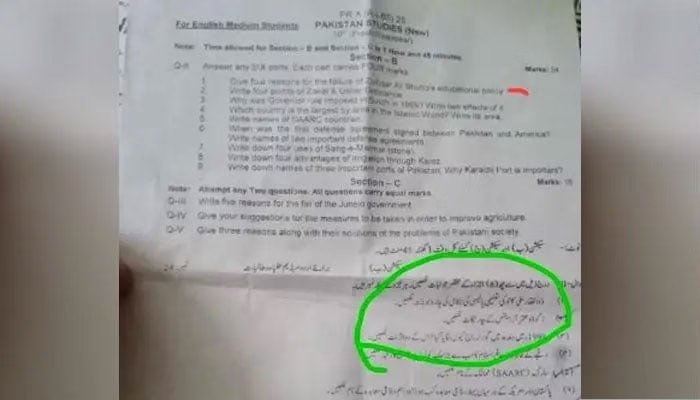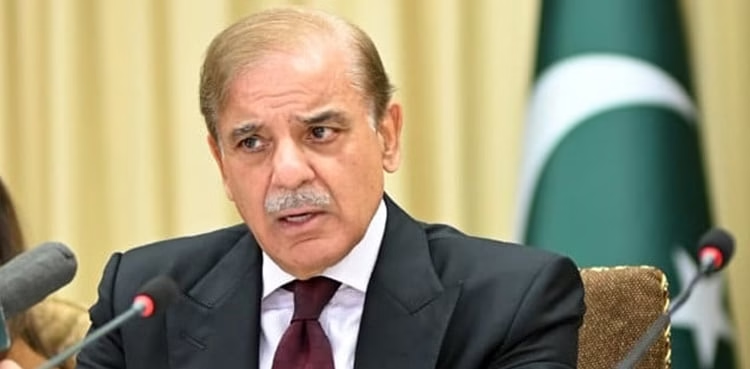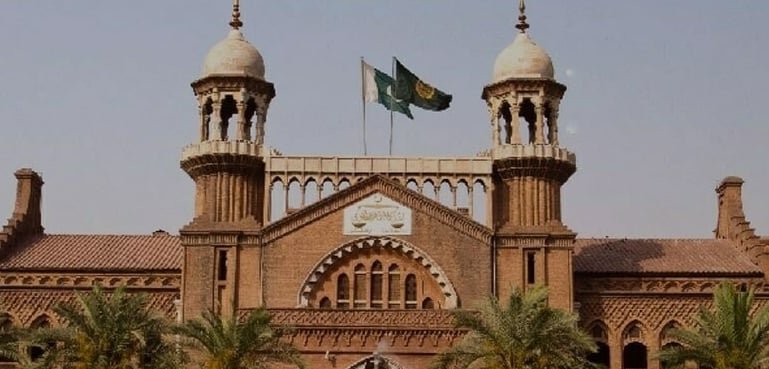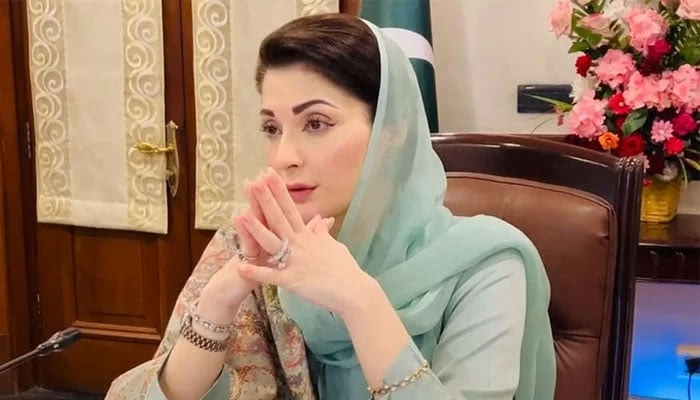The Pakistan Peoples Party (PPP) has strongly objected to a controversial question in the Peshawar Board’s Matriculation Pakistan Studies exam. The exam asked students to list four reasons behind the failure of Zulfikar Ali Bhutto’s education policy. PPP has labeled the question as deeply regrettable and accused the Khyber Pakhtunkhwa (KP) government of promoting political bias instead of focusing on quality education.
Ahmed Karim Kundi Takes Action
Ahmed Karim Kundi, a PPP leader and member of the Provincial Assembly, submitted a formal notice to the Provincial Assembly Secretariat. In the notice, he questioned the motives behind including such a one-sided question in the exam. He demanded an explanation and corrective action from the KP government.
Kundi stated that Zulfikar Ali Bhutto, Pakistan’s former Prime Minister and founder of PPP, introduced revolutionary reforms in the education system. According to him, these reforms were meant to lay the foundation for a knowledge-driven society. He called the exam question a deliberate attempt to tarnish the image of a leader who dreamed of accessible education for all.
Criticism of KP Government’s Education Emergency
Kundi criticized the KP government for declaring an education emergency while allowing such biased questions in official exams. He said that if the government was truly committed to improving education, it would focus on promoting academic integrity rather than injecting political narratives into classrooms.
He emphasized that the inclusion of such a question is not just an academic issue but part of a broader agenda to rewrite history with political intent. According to him, education should remain neutral and fact-based.
Details of the Controversial Question
The Pakistan Studies paper included the question: “Write four reasons for the failure of Zulfikar Ali Bhutto’s education policy.” This question sparked outrage not only among PPP members but also among educators and historians. Critics argue that the question lacks balance and ignores the significant contributions Bhutto made to Pakistan’s education system.
Demand for Recognition of Bhutto’s Contributions
Ahmed Karim Kundi urged the KP government to officially acknowledge the achievements of Zulfikar Ali Bhutto in education. He demanded that the government remove politically motivated content from textbooks and exam papers. He also called for paying tribute to Bhutto’s educational efforts and ensuring that future educational content is historically accurate and neutral.
Bhutto’s Education Legacy
Zulfikar Ali Bhutto is known for introducing key reforms in the education sector. His government focused on the nationalization of schools and colleges to improve access. He advocated for free primary education and worked to expand higher education by establishing universities and technical institutions. His vision was to create an education system that served the needs of the entire nation, especially the underprivileged.
While Bhutto’s reforms faced criticism and challenges, many education experts agree that his policies were foundational in shaping Pakistan’s modern education system.
Wider Political and Social Reactions
The issue has triggered a larger debate about the role of politics in education. Many believe that exam content should be free from political bias and focus on balanced historical perspectives. On social media, PPP supporters have started campaigns using hashtags like RespectBhuttoLegacy and BiasedSyllabus, urging authorities to investigate and revise the curriculum.
The KP Education Department and the Peshawar Board have yet to respond publicly to the growing criticism. However, this incident has highlighted the urgent need for education boards across Pakistan to uphold academic fairness and avoid turning classrooms into spaces for political rivalry.
Ahmed Karim Kundi concluded his statement by urging the government to protect the values of education by ensuring students are taught facts, not agendas. If Pakistan is truly in an education emergency, then the focus must be on unity, truth, and learning—not political point-scoring.



